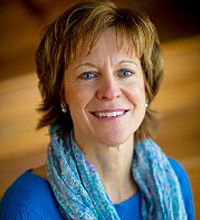Thanks to Sally Derstine, senior family business advisor with the Delaware Valley Family Business Center, for the following blog on “Transforming to a Family of Adults: A foundation for healthy generational transitions.” This is one of those useful pieces that can be used by advisors as conversation starters with their clients. Or by family business forum directors as they work with their members.
I am inspired by the creative ways families transform themselves as they move through the complexities of owning and operating businesses together. My comments grow out of my work with business families over the last 25 years as they have navigated the mountains and valleys of their transition journeys.
William Bridges refers to a transition as a three-phase psychological process that includes Endings, a Neutral Zone, and New Beginnings. He asserts that if organizational leaders facing transitions don’t prepare for these psychological transitions and only focus on the technical aspects of change, they may not get the results they are seeking.*
Business families who successfully move through generational transitions find ways to shift from a family of parents and children to a family of adults. I’d like to offer two foundational principles for advisors to use with business families as they seek to make this key psychological and strategic shift.
- The Rising Generation Finds Its Voice Outside the Family and Business System
Rising generations need to develop internal authority and external credibility and differentiate from their parents. This differentiation is complex in powerful family business systems as the rising generation is often under a microscope. Internal authority is nurtured by a commitment to self-understanding and self-management. External credibility is established as the rising generation charts its own path independent of the business by developing skills and competencies based on individual passions. Physically moving to another geographical location, working for another employer, earning promotions, and working towards financial independence all build internal and external credibility. As they do this, the rising generations find their voice outside the family and business systems, which helps them see themselves as adults – finding their identity outside of their roles as children.
- The Leading Generation Changes Its Narrative of the Rising Generation
A key responsibility of parents is to protect and meet the needs of their children. In order to move to a family of peers, it is the role of parents to shift their sense of responsibility “for” their emerging adult children to responsibility “to” their children by offering them space and grace, as well as nurture and support. The leading generation then needs to work at intentionally viewing their children through a peer-coach lens, rather than a parent-cop-boss lens. This allows both parents and children to release narratives that no longer serve anyone.
There is a lot at stake if business-owning families do not make the psychological shift from parent-child relationships to peer relationships. Dependence on parents can easily translate into entitlement in the business. Expectations on adult children can easily translate into sliding into the business out of loyalty or a desire to please. The greatest success occurs when both generations step into courageous conversations about how to move to peerage as this is a new dance for all — when each can give and receive feedback, forgive when there are missteps in falling back into parent-child patterns, and practice empathy during this delicate dance. Making this shift, however, sets the stage for healthier management and ownership transitions. While this is an evolutionary process and the Neutral Zone may be long, the hope is a New Beginning as a family of adults.
* “Managing Transitions: Making the Most of Change,” 3rd Edition, 2009, William Bridges, Ph.D.
About the contributor
 Sally Derstine, CFBA, ACFBA, is managing partner, senior family business advisor with the Delaware Valley Family Business Center. Sally will receive Fellow status at the FFI Global Conference in Miami. She can be reached at sally@dvfbc.com.
Sally Derstine, CFBA, ACFBA, is managing partner, senior family business advisor with the Delaware Valley Family Business Center. Sally will receive Fellow status at the FFI Global Conference in Miami. She can be reached at sally@dvfbc.com.





